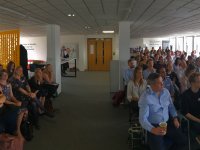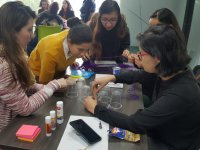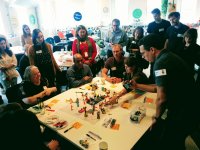The Better Government Movement (BGM), housed on Innovation.gov, builds a 21st century, delivery-driven government. BGM creates an inclusive space where public servants can grow their creative capacity and learn new tools, approaches, and mindsets to jumpstart innovation. This is in service of solving government-wide problems and affecting positive change within agencies and government writ large.
Innovation Tag: Leadership
CivTech is the Scottish Government’s challenge programme for innovation. The programme pioneers a smarter, faster approach to public procurement to harness entrepreneurial tech innovation and citizen engagement, improving public service delivery, creating economic development opportunities and fostering an entrepreneurial mindset within government.
In response to a failing property market, Limerick City and County Council took the ambitious step to create the first, Local Authority wholly owned special purpose vehicle created in Ireland to deliver a city and countywide programme of property investment. It required the local authority to take on the role of developer of derelict properties in the core of the city setting up this legal entity and raising the investment funding needed to develop key strategic sites.
This online course seeks to foster an innovation ecosystem in Bogota’s public offices, offering Bogota’s public officials the tools to gain capacities for public innovation.
Through practical exercises that are related to drawing and mapping, among others, public officials gain insight on ways to approach the users of public services.
Government of West Bengal provided 7.0 million bicycles to students of class IX to XII standard in Government run and aided schools as mobility support under “Sabooj Sathi” scheme – a pioneering initiative towards universal access to higher education.
The Twinning Programme is part of the Gauteng Department of Education’s wider strategic framework and its “Re-organisation of Schools” strategy. The objectives of the Twinning Programme are to improve learner outcomes and foster social cohesion in nurturing holistic learner development by creating an environment for cultural exchange through sharing expertise and resources across suburban and township schools.
My Open Library is a customer service delivery project which extends public library opening hours from 8.00 am to 10.00 pm, seven days per week. New technology allows users to access the buildings and services at times that suits them best.
A collaboration between government and community, Systemic Design eXchange (SDX) is an Edmonton-based community of practice for people interested in learning about systemic design as a methodology for addressing complex, real world issues. Together, we explore systems thinking, design thinking, and change lab approaches. With a bias towards learning by doing, SDX aims to be a watering hole where multiple sectors can come together, learn together, and act together.
The establishment of the Civil Service Management Board (CSMB) was a pivotal step in setting the future direction of strategic leadership in the Irish civil service. The CSMB enabled all Secretaries General/Heads of Offices, for the first time, to meet collectively to have strategic discussions on issues affecting all Government Departments and Offices. The CSMB implements the Civil Service Renewal Plan (CSRP), which seeks to tackle the biggest challenges facing the Irish civil service.
Two decades ago, 80% of Indonesia’s timber exports consisted of illegally-sourced wood. In order to combat this problem and to promote more sustainable forest management, the Government of Indonesia developed an innovative multi-stakeholder approach to ensure that wood products and raw materials would only be obtained or come from sources whose origins and management were legal and sustainable. Thus, the Timber Legality Assurance System (Sistem Verifikasi Legalitas Kayu – SVLK) was born.





